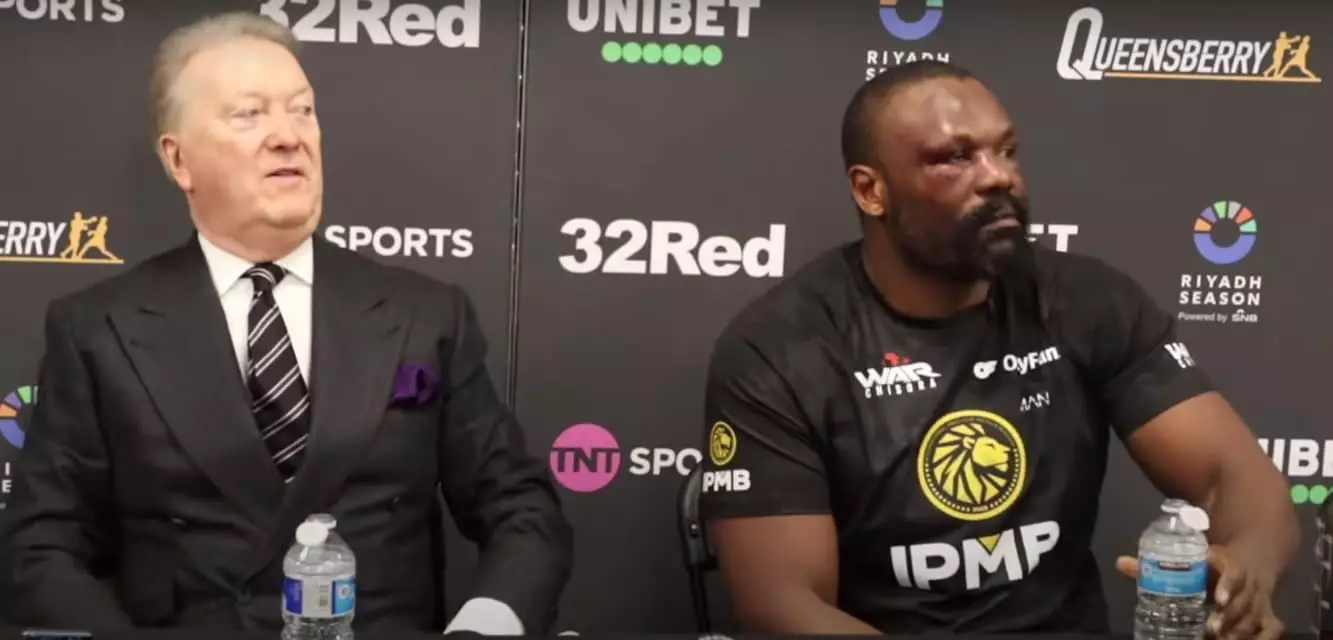Derek Chisora, a seasoned fighter with a long history in the heavyweight boxing division, etched another chapter in his career by defeating Otto Wallin in a recent bout held in Manchester, England. This win, a unanimous decision after 12 rounds, has propelled Chisora into the spotlight, igniting his aspirations to face some of the sport’s elite: Anthony Joshua, Oleksandr Usyk, and Daniel Dubois. As Chisora looks toward the potential for these lucrative fights, it’s imperative to delve into the feasibility and implications of his ambitious goals.
Among his targeted opponents, Chisora exhibits a clear preference for fighting the unified champion, Oleksandr Usyk. He openly expressed his intention to reach out to Usyk to propose a matchup. However, the reality of such a bout raises significant questions. For Usyk, accepting a fight with Chisora could represent a financial setback. Reasonably, Usyk is likely to consider more appealing prospects that offer greater competition and fan interest. Given the abundance of talented heavyweights ranked above Chisora, the rationale for engaging in a matchup against him weakens considerably.
When examining the options—Joshua, Usyk, and Dubois—Daniel Dubois emerges as the most plausible candidate for a matchup with Chisora. Dubois occupies the mandatory position for the IBF title, offering a strategic pathway for Chisora if he can leverage this ranking. Nevertheless, Dubois’s ambition appears to be aligned with securing bouts against higher-caliber opponents like Joshua or Usyk, overshadowing Chisora’s aspirations. It is highly probable that Dubois would prefer to sidestep a contest against Chisora, viewing it as a mismatch that wouldn’t elevate his career.
Chisora’s victory came under the dubious auspices of an IBF title eliminator, a designation that has sparked scrutiny. With both fighters ranked in the lower tier of the heavyweight spectrum—Chisora at #9 and Wallin at #12—the justification for sanctioning this fight as an eliminator comes into question. Many analysts argue that neither athlete possesses the caliber to compete for a world title, thus diminishing the credibility of the IBF’s sanctioning practices. Notably, while Chisora emerged victorious, the performance was not without its criticisms, as he struggled through much of the contest, relying on sporadic bursts of activity to sway the judges.
In contemplating Chisora’s wish to share the ring with Joshua, Usyk, or Dubois, one must reflect on the broader implications for the sport. Fans and critics alike express skepticism regarding Chisora’s chance of making a substantial impact against any of these formidable opponents. The potential for such matchups to materialize into a high-profile pay-per-view event raises alarms about their overall value in the current boxing landscape. At 41, Chisora’s time to capitalize on these opportunities is running thin, and it will be essential for him to assess whether pursuing these ambitions aligns with both his career legacy and the entertainment value of heavyweight boxing.
While Chisora’s ambition is commendable, the path forward must be navigated with a vigilant eye on the realities of competition and the expectations of boxing fans worldwide.

